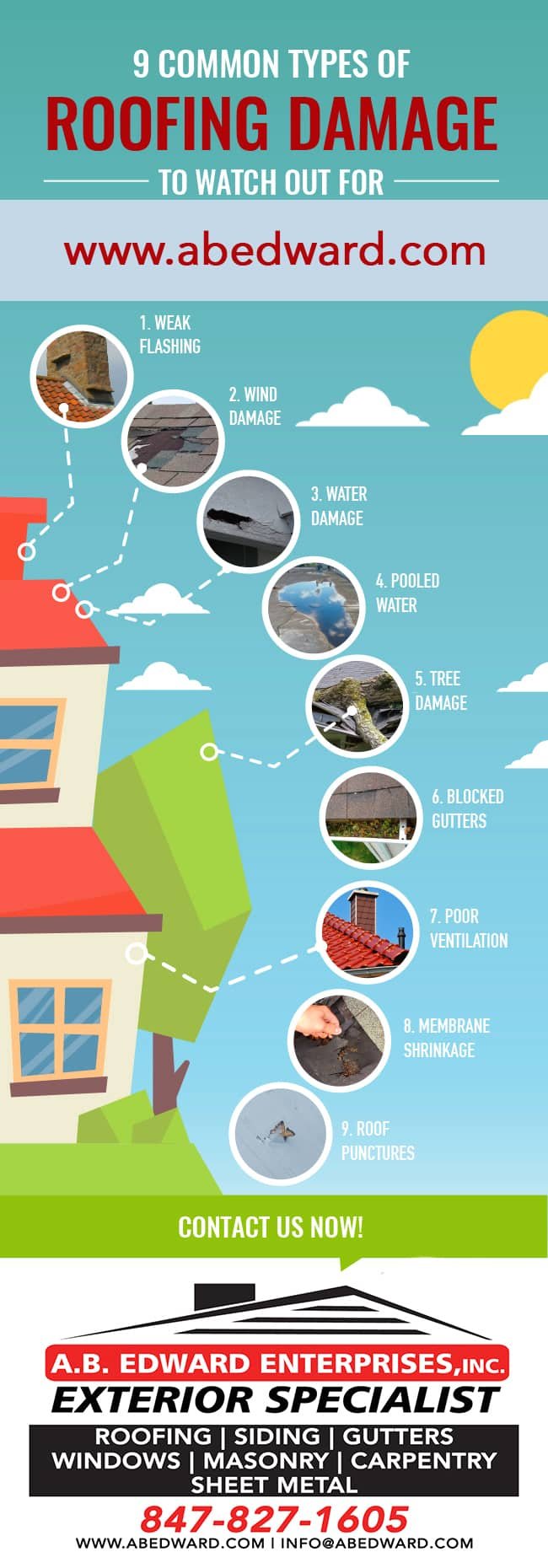9 Common Type of Roofing Damage and What You Should Know

1. Weak flashing—If your roof leaks, there’s a good chance there’s a crack in your flashing somewhere or that the flashing has corroded to a certain point due to age. Flashing that isn’t sealed properly is also subject to leaking.
2. Wind damage—Wind may seem harmless, but it can create big problems for your roof. If a recent wind storm blew off a section of your shingles, it’s best to give us a call for help.
3. Water damage—Over time, cracks and gaps can let water into your roof. This can weaken its structure and create issues in other parts of your home, as well.
4. Pooled water—If there are pools of water accumulating on top of your roof, especially after a rain storm, this could be a sign of faulty drainage. Check your roof regularly for pooling water to prevent early deterioration.
5. Tree damage—Branches from trees surrounding your roof that are too long can scratch and erode your shingles. In some cases, unruly branches can break shingles and cause whole sections to wear away.
6. Blocked gutters—Are your gutters full of dirt, dust, leaves, tree branches, and other debris? Clogged gutters can cause water to pool on top of your roof, weakening its structure over time.
7. Poor ventilation—If your roof isn’t ventilated properly, it’s at risk for mold and mildew growth.
8. Membrane shrinkage—The membrane beneath your shingles, which acts as a protectant, can shrink over time and cause your shingles to blister and crack.
9. Roof punctures—Harsh weather can lead to punctures in certain places on your roof. Unless taken care of quickly, these punctures can leave your roofing system vulnerable to additional damage.

